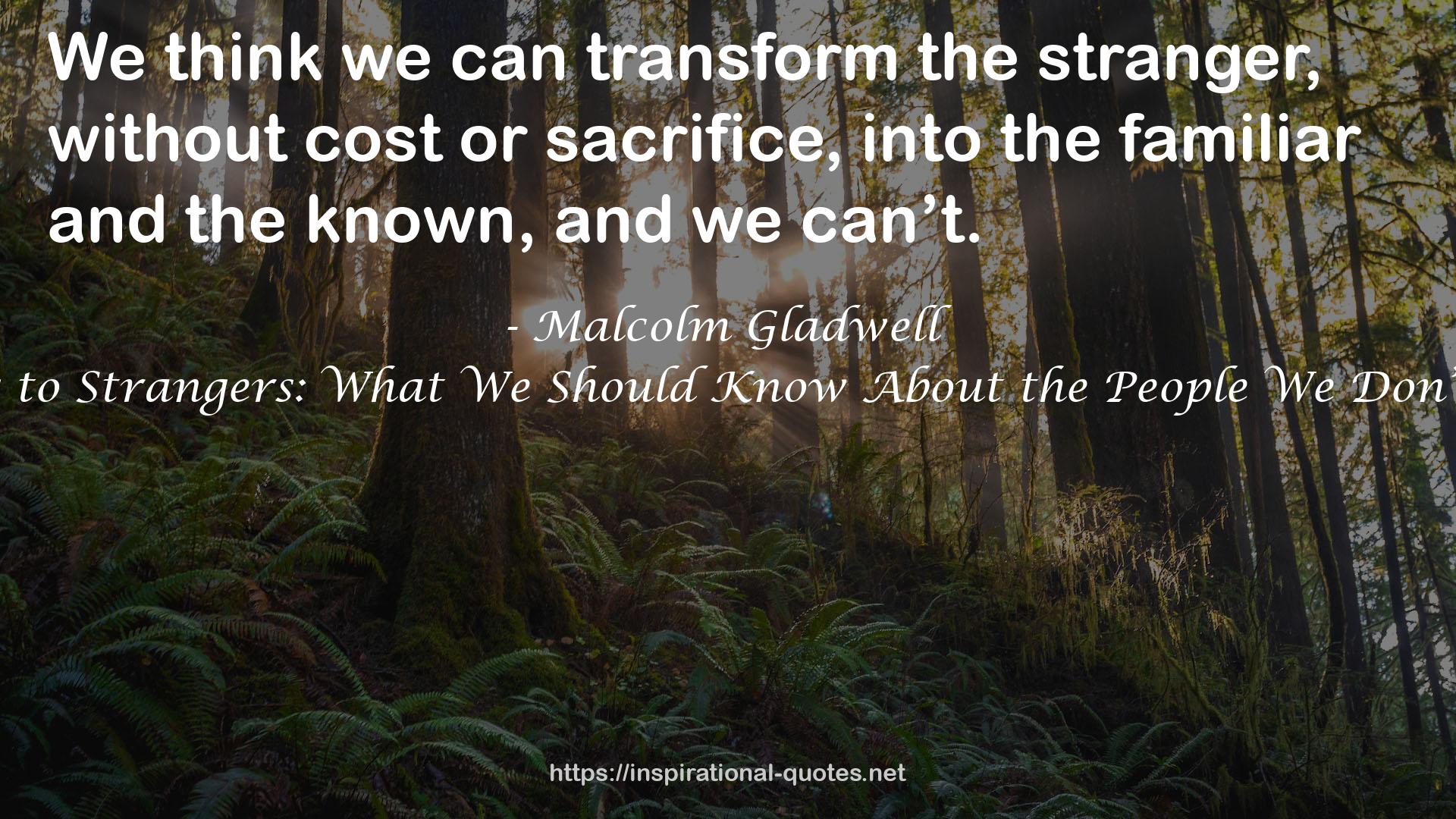48
" He had been studying crime in a library. Now he was at ground level, walking side by side with beat cops. And right from the beginning, something struck him as odd. Common sense had always held that crime was connected to certain neighborhoods. Where there were problems such as poverty, drugs, and family dysfunction, there was crime: The broad conditions of economic and social disadvantage bred communities of lawlessness and disorder. In Los Angeles, that neighborhood was South Central. In Paris, it was the outer suburbs. In London, places like Brixton. Weisburd was in New York’s version of one of those neighborhoods—only the neighborhood wasn’t at all what he had imagined: “What I found was, quite quickly, that after we got to know the area, we spent all our time on one or two streets,” he says. “It was the bad neighborhood of town, [but] most of the streets didn’t have any crime. "
― Malcolm Gladwell , Talking to Strangers: What We Should Know About the People We Don’t Know
50
" But if the same man is in a quiet corner of a bar, drinking alone, he will get more depressed. Now there’s nothing to distract him. Drinking puts you at the mercy of your environment. It crowds out everything except the most immediate experiences.2 Here’s another example. One of the central observations of myopia theory is that drunkenness has its greatest effect in situations of “high conflict”—where there are two sets of considerations, one near and one far, that are in opposition. So, suppose that you are a successful professional comedian. The world thinks you are very funny. You think you are very funny. If you get drunk, you don’t think of yourself as even funnier. There’s no conflict over your hilariousness that alcohol can resolve. But suppose you think you are very funny and the world generally doesn’t. In fact, whenever you try to entertain a group with a funny story, a friend pulls you aside the next morning and gently discourages you from ever doing it again. Under normal circumstances, the thought of that awkward conversation with your friend keeps you in check. But when you’re drunk? The alcohol makes the conflict go away. You no longer think about the future corrective feedback regarding your bad jokes. Now it is possible for you to believe that you are actually funny. When you are drunk, your understanding of your true self changes. This is the crucial implication of drunkenness as myopia. The old disinhibition idea implied that what was revealed when someone got drunk was a kind of stripped-down, distilled version of their sober self—without any of the muddying effects of social nicety and propriety. You got the real you. As the ancient saying goes, In vino veritas: “In wine there is truth.” But that’s backward. The kinds of conflicts that normally keep our impulses in check are a crucial part of how we form our character. All of us construct our personality by managing the conflict between immediate, near considerations and more complicated, longer-term considerations. That is what it means to be ethical or productive or responsible. The good parent is someone who is willing to temper their own immediate selfish needs (to be left alone, to be allowed to sleep) with longer-term goals (to raise a good child). When alcohol peels away those longer-term constraints on our behavior, it obliterates our true self. So who were the Camba, in reality? Heath says their society was marked by a singular lack of “communal expression.” They were itinerant farmworkers. Kinship ties were weak. Their daily labor tended to be solitary, the hours long. "
― Malcolm Gladwell , Talking to Strangers: What We Should Know About the People We Don’t Know
57
" Lamore took his doubts to his boss, Robert Sollazzo, who had doubts too. But not enough doubts. As the SEC postmortem on the Madoff case concluded, “Sollazzo did not find that Madoff’s claim to be trading on ‘gut feel’ was ‘necessarily…ridiculous.’” The SEC defaulted to truth, and the fraud continued. Across Wall Street, in fact, countless people who had had dealings with Madoff thought that something didn’t quite add up about him. Several investment banks steered clear of him. Even the real-estate broker who rented him his office space thought he was a bit off. But no one did anything about it, or jumped to the conclusion that he was history’s greatest con man. In the Madoff case, everyone defaulted to truth—everyone, that is, except one person. "
― Malcolm Gladwell , Talking to Strangers: What We Should Know About the People We Don’t Know

